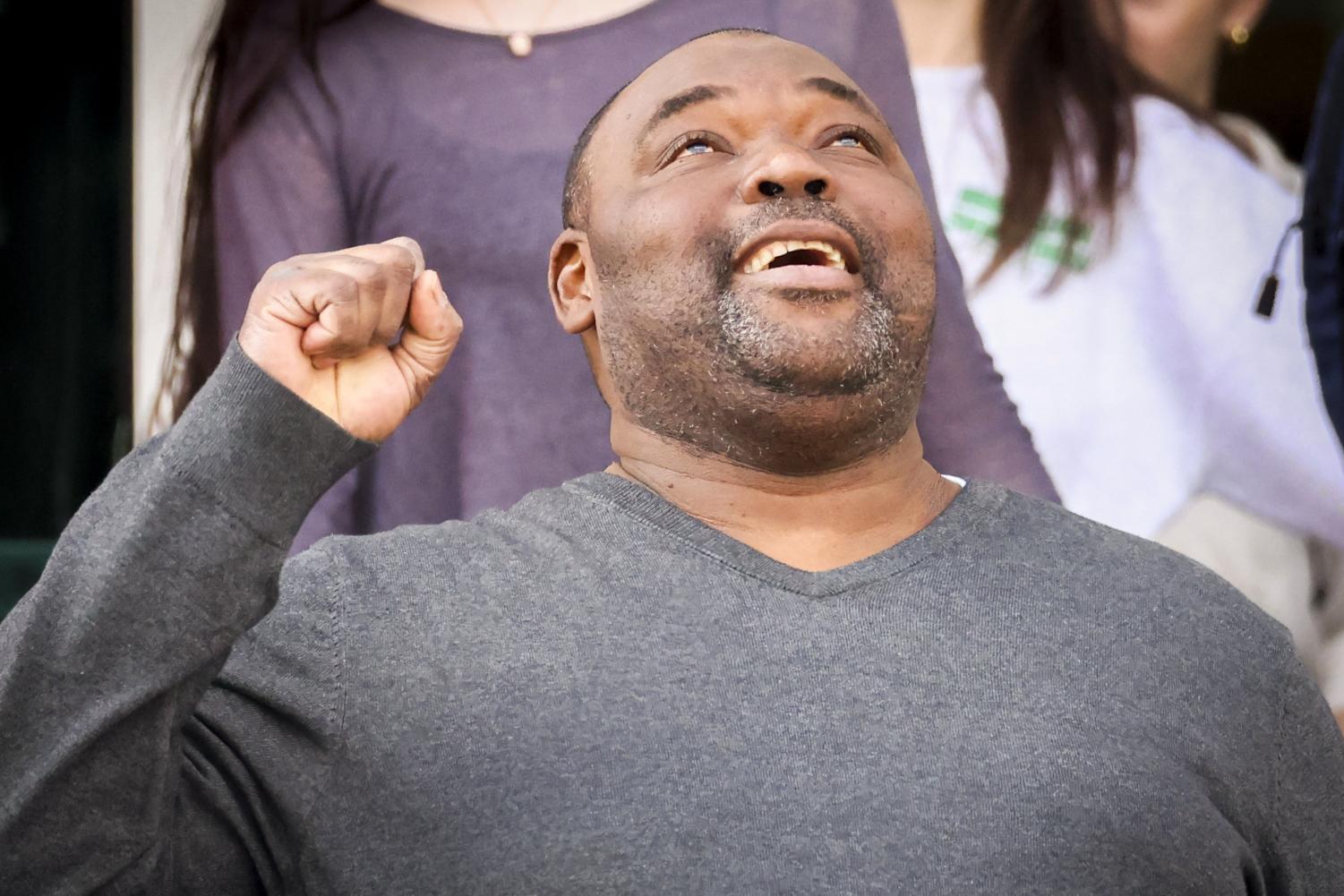NEW ORLEANS — Evangelisto Ramos walked out of a New Orleans courthouse and away from a life sentence accompanying a 10-2 jury conviction, thanks in large part to the landmark U.S. Supreme Court decision bearing his name.
Ramos v. Louisiana outlawed nonunanimous jury convictions as unconstitutional, with justices on the 6-3 majority acknowledging the practice as a vestige of racism from the era of “Jim Crow” laws enforcing racial segregation.
The 2020 ruling meant a new trial for Ramos, who was acquitted in March — this time by a unanimous jury — after defense lawyers highlighted weakness in the investigation leading to his prosecution.
“I knew my case was important because a lot of people were going to get their freedom back,” Ramos, a Black immigrant from Honduras, told The Associated Press, answering emailed questions about his time in prison and his pursuit of a new trial.
[pullquote speaker=”Sarah Chervinsky, one of Ramos’ retrial lawyers” photo=”” align=”left” background=”off” background_color=”” border=”none” border_color=”#888888″ border_size=”1px” shadow=”off”]You can’t overstate the significance of what this verdict signals[/pullquote]
But prospects for freedom remain murky for hundreds of people convicted on 10-2 or 11-1 jury votes whose appeals were exhausted before the Ramos case was decided. The advocacy group Promise of Justice Initiative estimates there are more than 1,500 such people locked up in Louisiana.
In Oregon, the only other state that allowed nonunanimous verdicts for convictions before the Ramos case, the state Supreme Court granted new trials. But the U.S. Supreme Court and the Louisiana Supreme Court rejected arguments to apply the ruling retroactively.
Louisiana advocates also have turned to the Legislature in recent years. But the latest potential remedy stalled in the House and appears dead after representatives voted 50-38 against the measure Thursday. It is unlikely supporters can revive the bill with two weeks left in the legislative session.
The proposal drew criticism from some prosecutors who didn’t want to revisit old cases, as well as advocates for people it was meant to benefit.
Instead of retroactively granting new trials, the legislation would establish a commission with three retired state appellate or Supreme Court judges empowered to decide whether the verdict “resulted in a miscarriage of justice,” and whether parole is warranted.
[pullquote speaker=”Hardell Ward, Promise of Justice Initiative” photo=”” align=”right” background=”off” background_color=”” border=”none” border_color=”#888888″ border_size=”1px” shadow=”off”]It has to be true relief[/pullquote]
Backers of the bill by Rep. Randal Gaines, D-LaPlace, cast it as a compromise. Prosecutors had argued mandatory new trials would strain the court system, renew emotional pain for crime victims and their families and burden prosecutors with years-old evidence and, in some cases, witnesses who have died or cannot be found.
Even the compromise failed to win over some state prosecutors, according to Loren Lampert, executive director of the Louisiana District Attorneys Association, which was officially neutral on the bill. Meanwhile, criminal justice advocates were unhappy with the compromise measure’s lack of a path for exoneration.
“It has to be true relief — release from being considered guilty,” said Hardell Ward, a Promise of Justice Initiative attorney whose client’s case led to a state high court ruling barring older, appeal-exhausted convictions from the ban on nonunanimous verdicts.
Ramos was arrested in 2014 and tried on a second-degree murder charge in the stabbing death of a woman found in a trash can outside her home. All but two jurors found him guilty in 2016. Retrial defense attorneys noted DNA from two people, neither of them Ramos, was found under the victim’s fingernails. There was no blood recovered from the floor of Ramos’ apartment, where prosecutors argued she was killed.
You can’t overstate the significance of what this verdict signals about how deeply problematic these nonunanimous juries were,” said Sarah Chervinsky, one of Ramos’ retrial lawyers.
Nonunanimous jury policies were rooted in post-Civil War policy and designed to make conviction of Black defendants easier, even with one or two Black jurors.
In 2018, Louisiana voters prohibited nonunanimous verdicts for crimes committed after Jan. 1, 2019. The vote followed a Pulitzer Prize-winning series of stories in The Advocate analyzing the law’s racist origins and the racial disparities in verdicts.
The 2020 Ramos decision affected active cases even for crimes committed before 2019. But progress stalled when the high courts refused to make the Ramos decision retroactive.
Some prosecutors have taken it upon themselves to review cases involving Jim Crow verdicts.
Jason Williams established a civil rights division when he took over New Orleans’ district attorney’s office in 2021 on a reform platform. His office says more than 100 of an estimated 230 such cases have been reviewed. Cases were dismissed against 10 wrongfully convicted people and dozens of sentences or charges have been reduced.
It’s not clear how many verdicts have come out differently after Ramos. The Louisiana District Attorneys Association is not compiling those statistics, Lampert said in an email.
New trials do not always lead to new verdicts. A jury in Jefferson Parish unanimously convicted a man of second-degree murder whose nonunanimous 2018 conviction had been overturned. Jefferson prosecutors obtained a similar result in a retrial last August.
But a retrial requiring a unanimous verdict can mean a case with room for doubt gets a more thorough look, Chervinsky said.
“It is not a technicality, it is not an insignificant difference, when the prosecutor has to convince all 12 people to unanimously agree on a verdict,” Chervinsky said. “That encourages more vigorous debate and discussion. It requires them to really take into account all of the potential reasonable doubt in the case in a way that I think jurors can ignore if they’re permitted to ignore the voices of two people in that room.”
